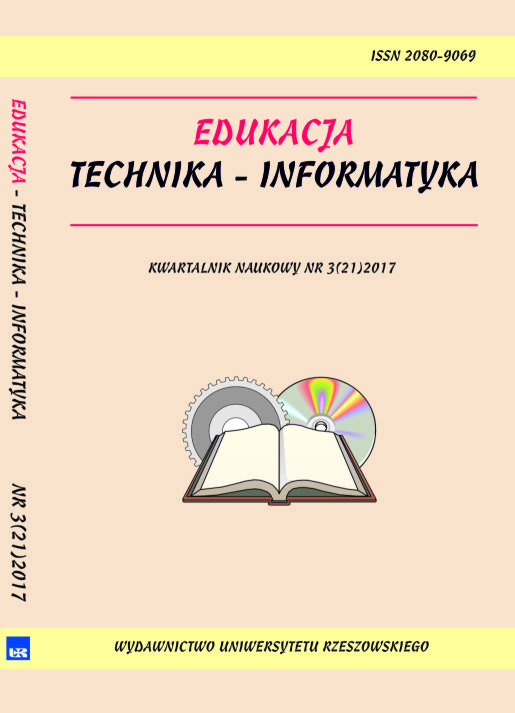Práce s chybou žáků ve výuce přírodních věd
Working with Students’ Error in Teaching Science
Author(s): Martin MALĈÍK, MIROSLAVA MIKLOŠÍKOVÁSubject(s): Social Sciences
Published by: Wydawnictwo Oświatowe FOSZE
Keywords: výuka; uĉení; ņák; uĉitel; chyba; chyba ve výuce; koncept nesouladu; kognitivní nerovnováha; learning; teaching; pupil; teacher; error; error in teaching and learning; concept of difference; cognitive
Summary/Abstract: Ĉlověk chybuje od narození, koneckonců i dovednost chodit vyņaduje od malého dítěte nespoĉet pokusů, které konĉí pádem, tedy chybným pohybem. Ne nadarmo se říká, ņe chybami se ĉlověk uĉí. Po zahájení povinné ńkolní docházky vńak je chyba kvantifikována do podoby hodnocení a známkování a ņáci postupně nabývají dojmu, ņe dělat chyby je něco ńpatného, nechtěného, a ņe je ņádoucí se takového jednání za kaņdou cenu vyvarovat. Dělat chyby, a to při jakémkoli typu uĉení, je přitom věc přirozená, je od něj neoddělitelná, je jeho souĉástí, a dokonce je odborníky povaņována za jednu z fází řeńení problému. Podívámeli se na problematiku chybování z tohoto úhlu pohledu, pak musíme konstatovat, ņe úkolem uĉitele je ņáka nauĉit se ze svých chyb pouĉit a vyuņívat je v dalńím uĉení a ņivotě vůbec. V příspěvku bychom rádi poukázali na způsob, jakým vnímají chybu ņáka uĉitelé přírodních věd na základních ńkolách. Metodou dotazníku jsme zkoumali zda, a jak rozlińují závaņnost chyby v postupu řeńení úloh ņáky, zda jsou schopni jejich chyby ve výuce akceptovat a uĉí ņáky, jak je efektivně vyuņívat.;People make mistakes since they are born. After all, when a baby learns to walk, it is bound to make a number of attempts which end up in a fall, i.e. an erroneous movement. As the saying goes, we learn from our mistakes. However, in the compulsory education the error is quantified into the form of evaluation and marking, and pupils gradually start to think that making errors is wrong, undesirable and that it is necessary to avoid such behaviour at all costs. Making errors in any type of learning is, however, natural; it is inseparable from learning and even regarded by some experts as one of the phases of problem-solving. Considering the issue of making errors from this perspective, it should be stated that the objective of a teacher is to teach pupils how to learn from their errors and use them in further learning and in life generally. This paper aims to show how science teachers at primary schools perceive pupils‟ errors. Using questionnaires we investigated whether, and how, teachers distinguish the seriousness of their pupils‟ errors in the processof solving tasks, whether they are able to accept pupils‟ errors at class and teach them how to use the errors effectively.
Journal: Edukacja - Technika - Informatyka
- Issue Year: VIII/2017
- Issue No: 3
- Page Range: 48-55
- Page Count: 8
- Language: English, Czech

